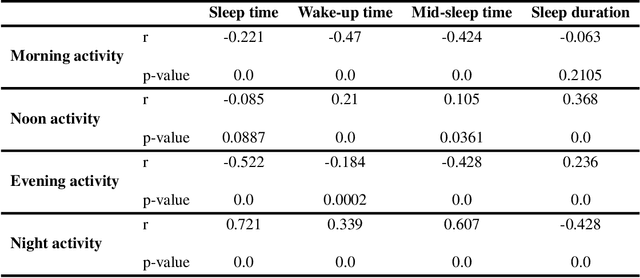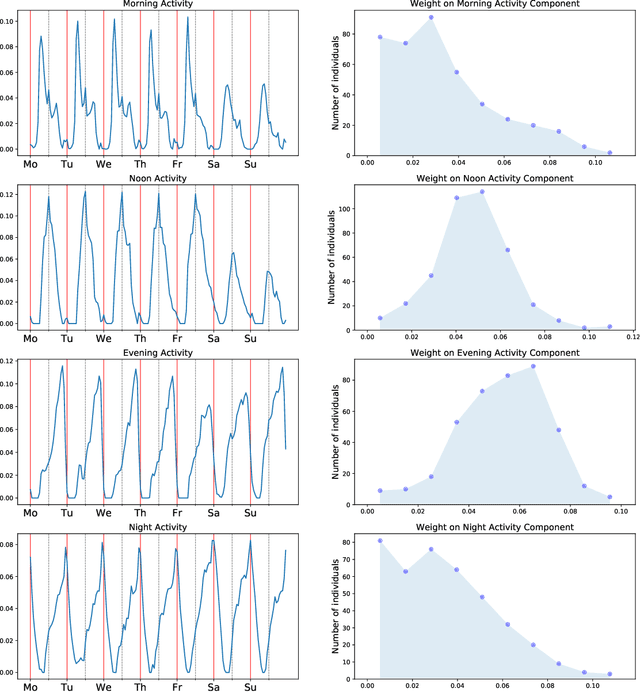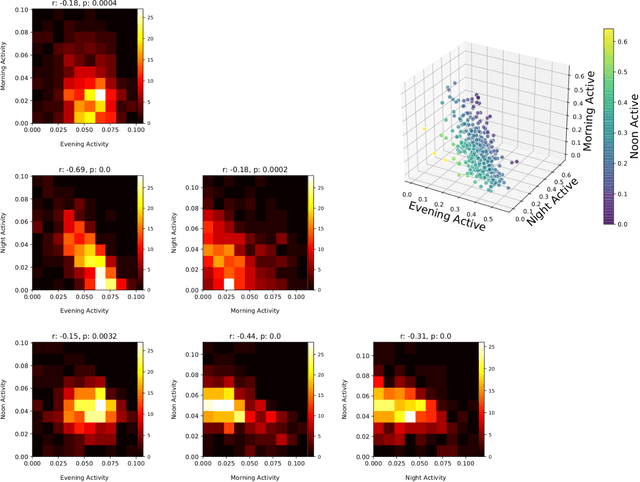Jari Saramäki
A Non-negative Matrix Factorization Based Method for Quantifying Rhythms of Activity and Sleep and Chronotypes Using Mobile Phone Data
Sep 21, 2020



Abstract:Human activities follow daily, weekly, and seasonal rhythms. The emergence of these rhythms is related to physiology and natural cycles as well as social constructs. The human body and biological functions undergo near 24-hour rhythms (circadian rhythms). The frequency of these rhythms is more or less similar across people, but its phase is different. In the chronobiology literature, based on the propensity to sleep at different hours of the day, people are categorized into morning-type, evening-type, and intermediate-type groups called \textit{chronotypes}. This typology is typically based on carefully designed questionnaires or manually crafted features drawing on data on timings of people's activity. Here we develop a fully data-driven (unsupervised) method to decompose individual temporal activity patterns into components. This has the advantage of not including any predetermined assumptions about sleep and activity hours, but the results are fully context-dependent and determined by the most prominent features of the activity data. Using a year-long dataset from mobile phone screen usage logs of 400 people, we find four emergent temporal components: morning activity, night activity, evening activity and activity at noon. Individual behavior can be reduced to weights on these four components. We do not observe any clear emergent categories of people based on the weights, but individuals are rather placed on a continuous spectrum according to the timings of their activities. High loads on morning and night components highly correlate with going to bed and waking up times. Our work points towards a data-driven way of categorizing people based on their full daily and weekly rhythms of activity and behavior, rather than focusing mainly on the timing of their sleeping periods.
 Add to Chrome
Add to Chrome Add to Firefox
Add to Firefox Add to Edge
Add to Edge